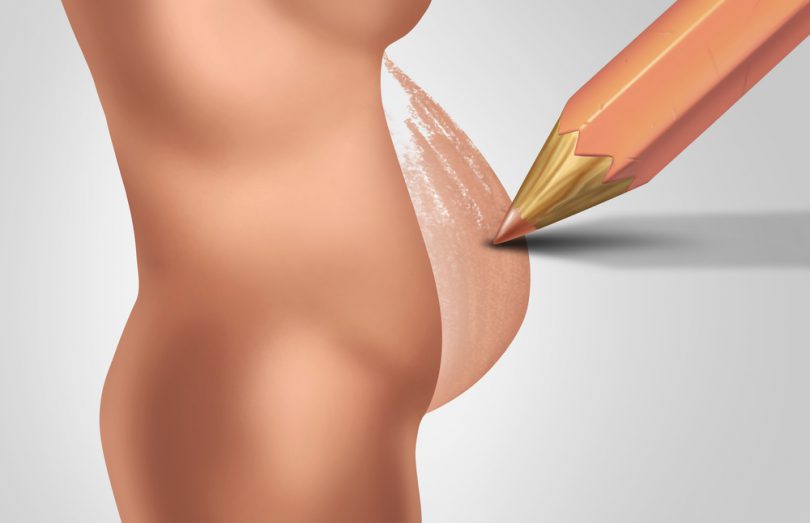Every year during the first week of November, Pan-European Fertility Week reminds us that 25 million European Union citizens face a fertility problem.
In 2018, the European Fertility Week coincides with the 40th anniversary of the birth of Louis Brown, the first “test tube baby”. In the 1970s, that was how babies conceived outside the body were referred to.
Taking part in pan-European awareness activities, Fertilovit®‘s comprehensive range of scientifically formulated and clinically proven food supplements is conducting a Fertility Awareness Campaign. The campaign is titled #yesican (“yes, I can”) and is based on 5 measures that can be taken by men and women to improve their fertility and increase the chances of having a child.
“Whether a couple is thinking about starting their childbearing efforts or is already trying to conceive, it’s never too late to start a healthier lifestyle,” says Mrs. Haroula Mathiopoulou-Bilalis, BSc, MMedSc, a molecular biologist specializing in Medical Assisted Reproduction, scientific director of Fertilovit® Greece. “Adopting certain healthy habits and stopping unhealthy ones can have measurable health and fertility benefits for both men and women. And although one cannot guarantee that the infertility problems of a couple will be solved if, for example, smoking is cut, it will surely increase the chances of succeeding in the effort to make a baby. ”
Here’s what you can do:
1. Follow a Mediterranean diet.
Many studies have shown that a healthy Mediterranean diet can improve fertility in both sexes because it not only feeds the body with abundant nutrients but also helps to obtain and maintain normal body weight.
One of the most recent studies was conducted by scientists at the Harokopio University of Athens. Women who ate more fresh fruits, vegetables, pulses, whole grains, fish, and olive oil six months before IVF were as much as 68% more likely to have a pregnancy and a baby. This study was published in the scientific journal Human Reproduction.
Other studies have shown that adopting the Mediterranean diet can improve the quality of semen in men.
In terms of body weight, the Mediterranean diet is associated with a reduced risk of obesity, which can also undermine fertility. It is noted that subfertility can also affect women with excessively low body weight.
2. Drink plenty of water.
Water is essential for good health and this in turn plays an important role in achieving and maintaining a pregnancy.
It has been found that women who are dehydrated often have reduced fertility, their uterus being less receptive to embryo implantation and the continuation of pregnancy.
This is due to the fact that in order to ensure our survival, the body takes care to provide first the necessary ingredients to our vital organs and only then to the secondary ones. When a person is chronically dehydrated, the reproductive system is the first one left without enough water, because childbirth is not necessary for survival.
3. Keep stress under control.
A little stress is a driving force and beneficial to our survival, but has serious health and fertility effects if levels are continuously high.
Particularly for couples that are trying to conceive, stress is exacerbated by the problem of fertility itself and is often accompanied by distress and feelings of intense anxiety and depression. The poor psychological condition, however, in turn presents as a blow to fertility. Objective studies, in which participants’ stress was not based only on what they said, but was evaluated on the basis of levels of specific hormones (eg, cortisol), have confirmed this.
One of these studies, published in Human Reproduction, showed that women with the strongest stress levels are twice as likely to experience unexplained infertility compared to their calmest peers. Another, published in Psychoneuroendocrinology, concluded that fertility correlated strongly with women’s stress during the previous 3-6 months.
It is therefore very important for the successful outcome of childbearing efforts to manage your stress.
4. Cut off bad habits.
Drinking and smoking harm any health parameter and fertility is no exception to this rule.
There is strong scientific evidence showing that both severely damage fertility because they cause hormonal disorders and damage to sperm and oocyte DNA. In addition, if pregnancy occurs, both can cause irreversible damage to the embryo as well.
Studies have shown that men who smoke have a lower sperm count and the sperms they produce may not have the correct morphology. Although a sporadic glass of wine or a beer will not harm the sperms, regular alcohol consumption may reduce testosterone levels and the number of spermatozoa produced.
For women, smoking is associated with aging of the ovary and reduction of ovarian reserve. It also damages the uterine cervix and the fallopian tubes and increases the risk of ectopic pregnancy and miscarriage. In addition, regular alcohol consumption prior to conception is associated with ovarian disorder.
For these reasons, it is generally recommended to avoid drinking and smoking for every couple trying to get a child – let alone if they already know they are struggling with infertility.
5. Sleep well and enough.
Sleep is important for the preservation of life and affects health and fertility. Good night sleep is essential for the renewal and restoration of the brain and the whole organism while regulating important hormones in the body, including those of fertility. Leptin is a hormone that correlates with sleep and fertility. It affects ovulation, but in order to produce it in sufficient quantities, the woman has to sleep quite a lot. When women suffer from a lack of sleep, their menstrual cycle can be disturbed. Other hormones working in a similar way are progesterone, estrogen, luteinizing hormone (LH) and follicle stimulating hormone (FSH). The main stress hormone, cortisol, high levels of which are associated with decreased fertility, is also affected.
In addition, studies have shown that women working in the night or in shift with resulting disruption of their sleep pattern and duration, often have a irregular menstrual cycle that can cause fertility problems.







